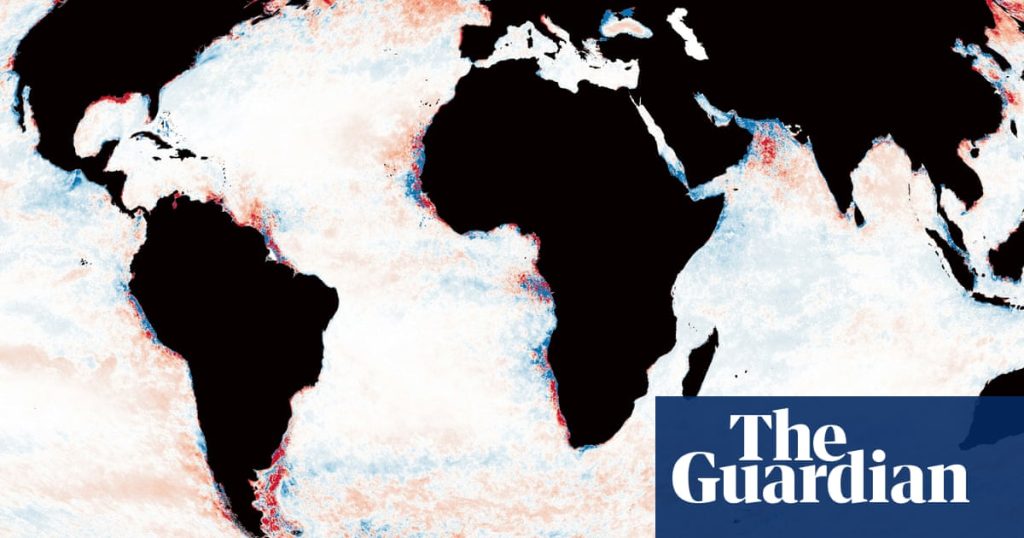Great swathes of the planet’s oceans have become darker in the past two decades, according to researchers who fear the trend will have a severe impact on marine life around the world.
Satellite data and numerical modelling revealed that more than a fifth of the global ocean darkened between 2003 and 2022, reducing the band of water that life reliant on sunlight and moonlight can thrive in.
The effect is evident across 75m sq km (30m sq miles) of ocean, equivalent to the land area of Europe, Africa, China and North America combined, and disturbs the upper layer of water where 90% of marine species live.
Dr Thomas Davies, a marine conservationist at the University of Plymouth, said the findings were a “genuine cause for concern”, with potentially severe implications for marine ecosystems, global fisheries and the critical turnover of carbon and nutrients in the oceans.
Most marine life thrives in the photic zones of the world’s oceans, the surface layers that allow sufficient light through for organisms to exploit. While sunlight can reach a kilometre beneath the waves, in practice there is little below 200 metres.
This upper band of water is where microscopic plant-like organisms called phytoplankton photosynthesise. The organisms underpin virtually all marine food webs and generate nearly half the planet’s oxygen. Many fish, marine mammals and other creatures hunt, feed and reproduce in the warmer waters of the photic zones where food is most abundant.
Davies and his colleagues drew on satellite data and an algorithm used to measure light in sea water to calculate the depths of photic zones around the world. Darkening affected 21% of the global ocean in the 20 years to 2022. In 9% of the ocean, this led to photic zones being 50 metres shallower, while in 2.6% of the ocean, the zones were 100 metres shallower. Details of this study appear in Global Change Biology.
The oceans darken when light finds it harder to penetrate the water. It is often seen along coastlines where upwellings of cold, nutrient rich water rise to the surface, and where rainfall sweeps nutrients and sediments from the land into the water.
The drivers for darkening far offshore are less clear, but global heating and changes in ocean currents are thought to be involved. “The areas where there are major changes in ocean circulation, or ocean warming driven by climate change, seem to be darkening, such as the Southern Ocean and up through the Gulf Stream past Greenland,” Davies said.
Despite an overall darkening, about 10% of the ocean, or 37 million sq km, became lighter over the past 20 years, the study found. Off the west coast of Ireland, for example, a very large area of ocean has brightened, but further out it has darkened.
“Marine organisms use light for a whole variety of purposes. They use it for hunting, for mating, for timing reproductive events. They use it for basically every single part of their biology,” said Davies. “With ocean darkening, they have to move up the water column, and there is less space, they’re all being squished up towards the surface.”
Prof Oliver Zielinski, the director of the Leibniz Institute for Baltic Sea Research in Germany, said the darkening of vast ocean areas was a “worrying trend”.
“Such changes can disrupt marine food webs, alter species distributions, and weaken the ocean’s capacity to support biodiversity and regulate climate,” he said. “Coastal seas, being closest to human activity, are particularly vulnerable, and their resilience is crucial for both ecological health and human wellbeing.”

